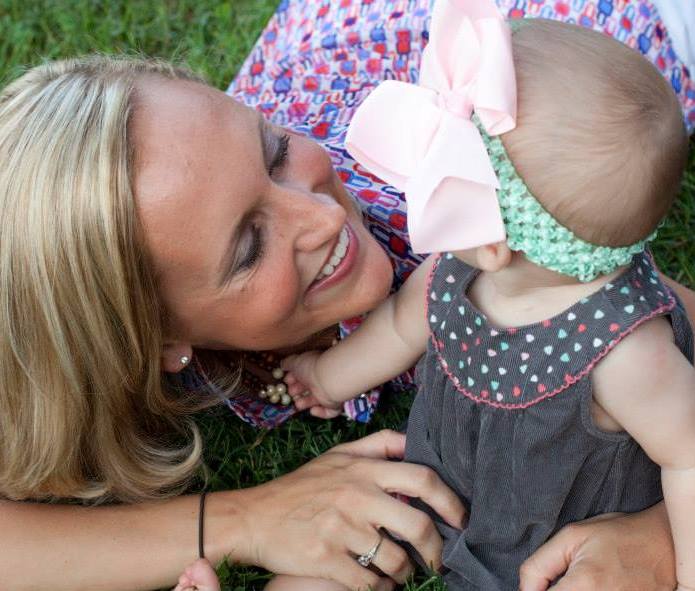Natural Birth
 Poppy523
member
Poppy523
member
Options
Risks of Water Birth?
I am giving birth at a birthing center across the street from the hospital with a midwife. As part of delivering at the center I have the option to do a water birth in a giant tub. Not only are the midwives willing to do it, but they very very very strongly encourage it. They have talked DH into it and he really wants me to consider doing one, but I want to make sure I am aware of all the risks and rewards that can come with a water birth. Do you ladies have any input or any suggestions for reading?
This discussion has been closed.






Re: Risks of Water Birth?
To be honest, I'm not really aware of any risks (for a normal, uncomplicated birth). As far as benefits - it offers pain relief. I had one birth with an epi and two without, and without a doubt my birth in the water felt as close to the epi as you can get without one. Waterbirths also decrease your risk of tearing and can help decrease your risk of passing things like GBS to the baby.
And personally, I feel like it offers a really gentle entrance into the world for your baby. The water is warm and what the baby is used to being in. So after the birth you get to keep baby's body under the water, warm, and I feel like it is less startling for them than a "dry" birth. My waterbirth baby was so calm after the birth. She just looked up at me and blinked her little eyes, whereas my boys who weren't born in the water were screaming their heads off.
Breastfeeding Counselor with Breastfeeding USA
Babywearing Guide ** Newborn Carriers
Cloth Diaper Guide
Safe Bed Sharing Info
My birth center gave me a list of risks (don't have it on me), but the risks were associated with large babies - bigger than 8lbs 14oz. I think the risks were water in the lungs, etc, but I don't remember and don't have the paperwork on me. The following is from their website:
As with any therapy there are risks. Risks to the mother include increase of body temperature, lowering of blood pressure, increase in pulse, risk of infection and maternal dehydration.
Risks to the baby include hyponatremia (low sodium level), water aspiration, pneumonia, tearing of the umbilical cord and neonatal infection. To date there have been no complications related to waterbirth at St. John West Shore Medical Center.So, they didn't list any risks for babies of average size?
AW, do you have a source for the lower risk of GBS transmission? I'm interested to learn more.
OP, the risks I've heard are that the baby can aspirate water and the risks of bacteria in the water (like if mom has a bowel movement), plus some people think it's gross. I don't think there have been many scientific studies on water birth, so it's hard to really know the risks and benefits beyond people's personal experiences.
I had a water birth with my second though and it was very helpful. The water helped with the pain and also helped make it easier to deliver in an upright position. If I ever have a third, I will want to try a water birth again.
I've read it several places. It has to do with the water "diluting" the bacteria. This is just the first thing that came up when I searched, so there may be better studies out there:
https://www.rcog.org.uk/womens-health/clinical-guidance/group-b-strep-and-water-birth-query-bank
"The numbers of GBS carriers were equally distributed between the two groups. Although the rate of water contamination was significantly higher in the study than in the control group (P< 0.001), the neonates born in water were less frequently colonized with GBS than those born in a traditional environment, even when preterm rupture of membranes occurred (nasal swabs, P=0.005; pharyngeal swabs, P=0.024)".
An earlier publication by Zanetti-Dallenbach et al (2006) included 89 women with a water birth compared with 133 women who delivered in a bed following immersion in water. There was no statistical difference in the number of GBS-carriers or of GBS-colonized neonates between the two groups. "The results even showed a trend towards less GBS colonization of the newborn after a waterbirth."
An article published by Cohain considers the studies included in a Cochrane review of immersion in water in labour and birth. (Cluett et al). The Cochrane review concluded that "The safety regarding infection and neonatal outcomes are not addressed, and large collaborative trials are needed to answer these critical issues." Cohain notes that "The literature provides a single case of early onset newborn Group B Strep (GBS) among 4432 waterbirths, suggesting that low-risk women who give birth in water may have a far lower rate of newborn GBS than women who have a dry birth. The last reported rate of newborn GBS for dry births was 1 in 1450."
Those risks aren't classified as larger babies, those are implied for all babies on their website. They had given me paperwork with case studies all citing risk cases where something happened to the baby - and of those, they were all for larger babies - I just don't have that paperwork accessible right now.
Thank you that is good to know I'm planning a waterbirth for my first right now.
I'm planning a waterbirth for my first right now.
Thanks, very interesting!